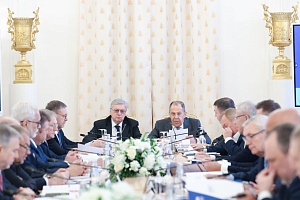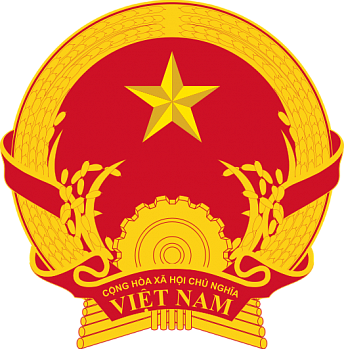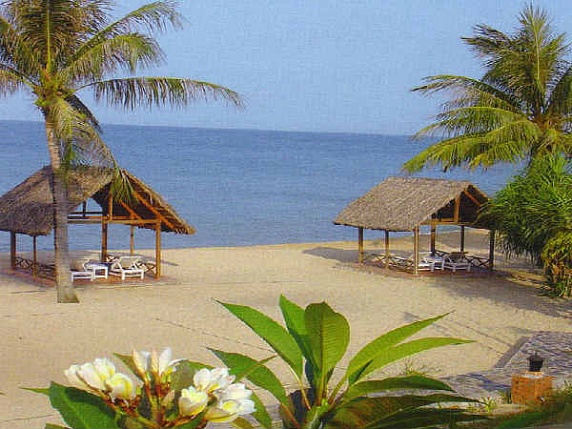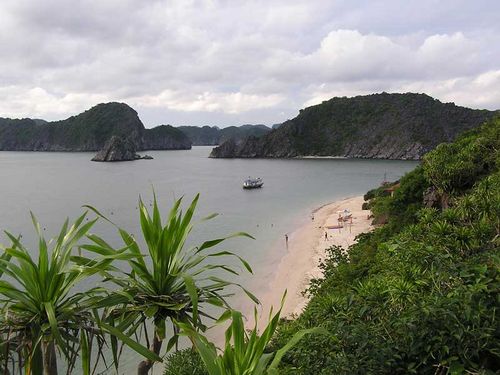 Социалистическая Республика Вьетнам
Социалистическая Республика Вьетнам
Foreign Minister Sergey Lavrov’s remarks at a meeting of the Supervisory Board and the Board of Trustees of Russian Foreign Ministry’s MGIMO University, Moscow, March 5, 2025
Colleagues,
Good afternoon.
We convene today for a regular joint session of the Supervisory Board and Board of Trustees of MGIMO University. The past year marked the University’s 80th anniversary.
I note with satisfaction that MGIMO’s merits have been duly recognised by the national leadership. By an Executive Order of the President of Russia Vladimir Putin, the University has been awarded the Order of Alexander Nevsky.
The anniversary has further cemented international cultural collaboration. Alongside Moscow, Astana also served as a platform for commemorative events.
At the initiative of the President of Kazakhstan, MGIMO alumnus Kassym-Jomart Tokayev, a high-level Russian-Kazakh conference titled “Sustainable Development and Security in the Eurasian Space” was organised. On its sidelines, a MGIMO Alumni Forum convened, attracting over 300 participants. Many present here today also derived satisfaction from this celebration. These events underscored MGIMO’s multifaceted role and affirmed Kazakhstan’s interest in the University’s presence within the Republic.
The establishment of an Astana branch was discussed during President Vladimir Putin’s state visit to Kazakhstan in November 2024. Concurrently, the University administration engaged proactively with Kazakhstan’s Ministry of Science and Higher Education. As a result, the Astana branch will commence operations in September 2025, initially based within the Eurasian National University campus. Simultaneously, efforts are underway to resolve the provision or construction of a dedicated MGIMO facility in Astana. We extend our gratitude to our Kazakhstan’s partners for their support.
We are aware of MGIMO’s ambitious plans to expand “educational diplomacy,” notably with Vietnam, where a visit by Anatoly Torkunov is being prepared. The Foreign Ministry will spare no effort to ensure the success of this visit.
I wish to highlight MGIMO’s Russian Schools Abroad initiative. Unified State Exam (USE) centres, established with the University’s support and accredited by the Federal Service for Supervision in Education and Science (Rosobrnadzor), operate in Uzbekistan, China, and Türkiye. Additionally, in the Republic of Türkiye, MGIMO oversees a school for children of personnel at the Akkuyu Nuclear Power Plant, in coordination with Rosatom.
It is gratifying that MGIMO remains the primary source of personnel for our foreign policy service. Last year, over 80 graduates joined the Ministry alongside alumni from other institutions, though MGIMO’s contribution remains the most substantial. These individuals serve diligently across the central office, embassies, and consulates.
Notably, MGIMO’s academic and research programmes fully incorporate contemporary geopolitical realities, including the ongoing formation of a more equitable multipolar world order and the deepening of Russia’s cooperation with states of the Global Majority. This alignment fully meets the Foreign Ministry’s requirements.
Of particular satisfaction is the expanded range of Eastern languages taught, including the reinstatement of Khmer, Burmese, and Malay, alongside new master’s programmes to train Chinese and Hindi simultaneous interpreters. Scholarly work in Oriental and African studies has also intensified.
In late 2024, MGIMO commenced collaboration on the transformation of the Ministry’s Diplomatic Academy. Preliminary discussions with Anatoly Torkunov confirmed the plan’s viability and, what is critical, expediency. Work has begun to consolidate resources between the University and the Academy, ensuring complementary – rather than duplicative – functions, with each institution leveraging its distinct competitive advantages.
We have agreed (with formal resolution imminent) that this process will be overseen by a special commission chaired by the First Deputy Foreign Minister.
The University’s focus on United Nations affairs remains paramount, particularly in this 80th anniversary year of the UN. I anticipate further advancement of UN-related themes during the April session of the International Model UN and at the Russian International Studies Association (RISA) Convention in October 2025.
Anatoly Torkunov has been the head of the United Nations Association of Russia for many years. The ongoing processes in the world certainly require closer attention to this organisation as today, many speculate that the Yalta system is outdated, therefore, the UN Charter should be foregone in order to divide the world along new lines.
New centres of power have emerged that must be involved in reaching agreements on how to live in the future. Fair principles are to be fundamental in this process. These fair principles are enshrined in the UN Charter: the sovereign equality of states, non-interference in the internal affairs of states, the right of peoples to self-determination, territorial integrity, and human rights, including rights pertaining to language and faith.
My request to MGIMO and other partners of ours would be to be wary of any calls for discarding the UN Charter, writing something new from scratch, or triggering processes that would go out of control. The Charter is a benchmark of equal rights and justice. Another matter is that few of our Western colleagues have complied with the Charter — but that does not mean that the right step is to destroy everything without building something to replace it.
Last year, MGIMO and other participants in the major support programme for Russian higher education institutions, the Priority 2030 programme, completed the first four-year cycle. All these four years, the university has been among the leading programme participants, which made it possible to obtain substantial federal subsidies for programme implementation. In particular, completely new research areas related to sustainable development and the international climate agenda have emerged.
It is good to see that MGIMO successfully develops research in such new areas as Big Data and digital technology for international relations and law. Anna Abramova, Director of the MGIMO AI Centre and a master’s programme of the same name, created in cooperation with the Moscow Institute of Physics and Technology, is a member of the High-Level Advisory Body on Artificial Intelligence under the UN Secretary-General. It is crucial not to allow the UN to neglect the discussion now unfolding around this topic in all formats. There is a UN General Assembly resolution that states that everybody involved in AI operate transparently, honestly and refrain from creating any schemes targeting other members of the international community. (We have already seen examples in the past.) We strongly support and hope that the Advisory Body under the UN Secretary-General will advocate for such an attitude and see that AI will not be exploited to widen the gap in progress and equality.
The support from the partner banks of VTB and Gazprombank was conducive to the emergence of a technical infrastructure that makes it possible to engage in neurolinguistics, neuromarketing, and generative research. The MGIMO University’s digital department is based on the Sber Programming School. We are sincerely grateful to our partners and the university’s benefactors.
A software product line on the experience economy – sports management, tourism and hospitality, as well as art and culture administration, with museums and galleries being a separate area of specialization.
MGIMO has successfully tested new types of networked educational software that enable students to be trained at two universities at once. This is how the Institute of World Agricultural Markets runs its master’s and bachelor’s programmes developed jointly with the Kuban and Stavropol state agricultural universities. There are also a master’s programme on trade and logistics management run jointly with the Vladivostok-based Admiral Gennady Nevelskoy Maritime State University (the Russian Far East) and a bachelor’s programme specialising in Northeast Asia, devised in cooperation with the Novosibirsk State University of Economics and Management (Siberia).
Colleagues,
MGIMO has achieved real practical results that create a solid foundation for the future. At the same time, it is necessary to continue moving forwards steadily, not to lag behind life and to surge ahead (as MGIMO can) in some cases. This is all the more topical because the Science and Technological Development Strategy, approved in February 2024 by an Executive Order of President Vladimir Putin, sets large-scale goals before the country’s education community. Only those universities that facilitate our country’s science and technological development can expect to receive federal funding and subsidies under the Priority 2030 programme. MGIMO should prove its worth once again and its leading positions in multiple fields, primarily in the context of Russia’s science and technological development and comprehensive support for technological projects in this sphere on global markets. I find it important to pay attention to drafting the development programme for 2025-2036. Today, we will hear a report by Anatoly Torkunov, and we will approve this programme’s guidelines that will eventually be specified.
Russia is moving to seriously overhaul it education model. This reform will impact all national universities without exception. In the past few months, the Federation Council and the State Duma have conducted the relevant hearings. Minister of Science and Higher Education Valery Falkov has chaired strategic sessions with leading universities. The new model stipulates an integral vertical system of higher education and MA programmes only as a highly specialised or top-level managerial aspect. An active conversion to this system will get underway throughout 2026, and the 2027 students’ enrollment campaign will be conducted completely in accordance with new regulations. The Rector of MGIMO who is a member of the Presidential Science and Education Council has become actively involved in this work.
In conclusion, I would like to thank Anatoly Torkunov and his entire team whose members are invariably praised by the leadership of the Russian Federation. Anatoly Torkunov is a member of the Presidium of the newly-established Science and Expert Council, affiliated with the Security Council. He is also a member of the Presidium of the Interdepartmental Commission for Historical Education. This highlights the high authority and prestige of the Ministry’s leadership.
I would like to thank our fraternal federal executive agencies, ministries and agencies and our business team once again. Since the Oversight Board and the Board of Trustees started working, they have been greatly assisting us during their operations and also during practical activities to implement the university’s own programmes.












